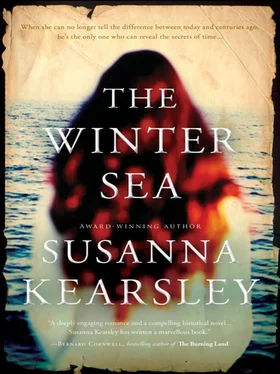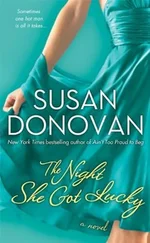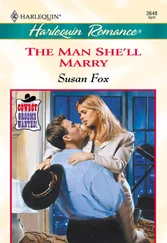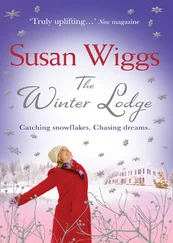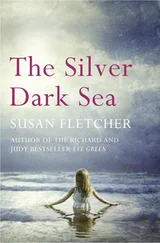Susanna Kearsley - The Winter Sea
Здесь есть возможность читать онлайн «Susanna Kearsley - The Winter Sea» весь текст электронной книги совершенно бесплатно (целиком полную версию без сокращений). В некоторых случаях можно слушать аудио, скачать через торрент в формате fb2 и присутствует краткое содержание. Год выпуска: 2008, ISBN: 2008, Жанр: Историческая проза, на английском языке. Описание произведения, (предисловие) а так же отзывы посетителей доступны на портале библиотеки ЛибКат.
- Название:The Winter Sea
- Автор:
- Жанр:
- Год:2008
- ISBN:9780749080976
- Рейтинг книги:3 / 5. Голосов: 1
-
Избранное:Добавить в избранное
- Отзывы:
-
Ваша оценка:
- 60
- 1
- 2
- 3
- 4
- 5
The Winter Sea: краткое содержание, описание и аннотация
Предлагаем к чтению аннотацию, описание, краткое содержание или предисловие (зависит от того, что написал сам автор книги «The Winter Sea»). Если вы не нашли необходимую информацию о книге — напишите в комментариях, мы постараемся отыскать её.
The Winter Sea — читать онлайн бесплатно полную книгу (весь текст) целиком
Ниже представлен текст книги, разбитый по страницам. Система сохранения места последней прочитанной страницы, позволяет с удобством читать онлайн бесплатно книгу «The Winter Sea», без необходимости каждый раз заново искать на чём Вы остановились. Поставьте закладку, и сможете в любой момент перейти на страницу, на которой закончили чтение.
Интервал:
Закладка:
Come home! The year has left you old; Leave those grey stones; wrap close this shawl Around you for the night is cold; Come home! He will not hear you call; No sign awaits you here but the beat Of tides upon the strand, The crag’s gaunt shadow with gull’s feet Imprinted on the sand,
And spars and sea-weed strewn Under a pale moon.
Come home! He will not hear you call; Only the night winds answer as they fall Along the shore,
And evermore
Only the sea-shells
On the grey stones singing, And the white foam-bells Of the North Sea ringing.
— E. J. Pratt, “On the Shore”
CHAPTER 1
IT WASN’T CHANCE. THERE wasn’t any part of it that happened just by chance.
I learned this later; though the realization, when it came, was hard for me to grasp because I’d always had a firm belief in self-determination. My life so far had seemed to bear this out—I’d chosen certain paths and they had led to certain ends, all good, and any minor bumps that I had met along the way I could accept as not bad luck, but simply products of my own imperfect judgment. If I’d had to choose a creed, it would have been the poet William Henley’s bravely ringing lines: I am the master of my fate; I am the captain of my soul.
So on that winter morning when it all began, when I first took my rental car and headed north from Aberdeen, it never once occurred to me that someone else’s hand was at the helm.
I honestly believed it was my own decision, turning off the main road for the smaller one that ran along the coastline. Not the wisest of decisions, maybe, seeing as the roads were edged with what I’d been assured was Scotland’s deepest snow in forty years, and I’d been warned I might run into drifting and delays. Caution and the knowledge I was running on a schedule should have kept me to the more well-traveled highway, but the small sign that said ‘Coastal Route’ diverted me.
My father always told me that the sea was in my blood. I had been born and raised beside it on the shores of Nova Scotia, and I never could resist its siren pull. So when the main road out of Aberdeen turned inland I turned right instead, and took the way along the coast.
I couldn’t say how far away I was when I first saw the ruined castle on the cliffs, a line of jagged darkness set against a cloud-filled sky, but from the moment I first saw it I was captivated, driving slightly faster in the hope I’d reach it sooner, paying no attention to the clustered houses I was driving past, and feeling disappointment when the road curved sharply off again, away from it. But then, beyond the tangle of a wood, the road curved back again, and there it was: a long dark ruin, sharp against the snowbound fields that stretched forbiddingly between the cliff ’s edge and the road.
I saw a parking lot ahead, a little level place with logs to mark the spaces for the cars, and on an impulse I pulled in and stopped.
The lot was empty. Not surprising, since it wasn’t even noon yet, and the day was cold and windy, and there wasn’t any reason anyone would stop out here unless they wanted to walk out to see the ruin. And from looking at the only path that I could see that led to it—a frozen farm lane drifted deep with snow that would have risen past my knees—I guessed there wouldn’t be too many people stopping here today.
I knew I shouldn’t stop, myself. There wasn’t time. I had to be in Peterhead by one o’clock. But something in me felt a sudden need to know exactly where I was, and so I reached to check my map.
I’d spent the past five months in France; I’d bought my map there, and it had its limitations, being more concerned with roads and highways than with towns and ruins. I was looking so hard at the squiggle of coastline and trying to make out the names in fine print that I didn’t see the man till he’d gone past me, walking slowly, hands in pockets, with a muddy-footed spaniel at his heels.
It seemed a strange place for a man on foot to be, out here. The road was busy and the snow along the banks left little room to walk beside it, but I didn’t question his appearance. Any time I had a choice between a living, breathing person and a map, I chose the person. So I scrambled, map in hand, and got my car door open, but the salt wind blowing off the sea across the fields was stronger than I’d thought it would be. It stole my voice. I had to try again. ‘Excuse me…’
I believe the spaniel heard me first. It turned, and then the man turned too, and seeing me, retraced his steps. He was a younger man than I’d expected, not much older than myself—mid-thirties, maybe, with dark hair whipped roughly by the wind and a close-trimmed dark beard that made him look a little like a pirate. His walk, too, had a swagger to it, confident. He asked me, ‘Can I help you?’
‘Can you show me where I am?’ I held the map towards him.
Coming round to block the wind, he stood beside me, head bent to the printed coastline. ‘Here,’ he said, and pointed to a nameless headland. ‘Cruden Bay. Where are ye meant to be?’ His head turned very slightly as he asked that, and I saw his eyes were not a pirate’s eyes. They were clear grey, and friendly, and his voice was friendly too, with all the pleasant, rolling cadence of the northern Scot.
I said, ‘I’m going north, to Peterhead.’
‘Well, that’s not a problem.’ He pointed it out on the map. ‘It’s not far. You just keep on this road, it’ll take you right up into Peterhead.’ Close by his knee the dog yawned a complaint, and he sighed and looked down. ‘Half a minute. You see that I’m talking?’
I smiled. ‘What’s his name?’
‘Angus.’
Bending, I scratched the dog’s hanging ears, spattered with mud. ‘Hello, Angus. You’ve been for a run.’
‘Aye, he’d run all the day if I’d let him. He’s not one for standing still.’
Neither, I thought, was his master. The man had an aura of energy, restlessness, and I’d delayed him enough. ‘Then I’ll let you get going,’ I said as I straightened. ‘Thank you for your help.’
‘Nae bother,’ he assured me, and he turned and started off again, the spaniel trotting happily ahead.
The hardened footpath stretched ahead of them, towards the sea, and at its end I saw the castle ruin standing stark and square and roofless to the swiftly running clouds, and as I looked at it I felt a sudden pulling urge to stay—to leave the car parked where it was and follow man and dog where they had gone, and hear the roaring of the sea around those crumbled walls.
But I had promises to keep.
So with reluctance, I got back into my rental car, turned the key and started off again towards the north.

‘You’re somewhere else.’ Jane’s voice, accusing me but gently, broke my thoughts.
We were sitting in the upstairs bedroom of her house in Peterhead, the bedroom with the little chains of rosebuds on the wallpaper, away from the commotion of the gathering downstairs. I gave myself a mental shake, and smiled. ‘I’m not, I—’
‘Carolyn McClelland,’ she said, using my full first name in the way she always did when catching me about to tell a lie, ‘I’ve been your agent for nearly seven years, I can’t be fooled. Is it the book?’ Her eyes were keen. ‘I shouldn’t have dragged you over here like this, should I? Not when you were writing.’
‘Don’t be silly. There are more important things,’ I said, ‘than writing.’ And to show how much I meant that, I leaned forward for another close look at the sleeping baby wrapped in blankets on her lap. ‘He’s really beautiful.’
Читать дальшеИнтервал:
Закладка:
Похожие книги на «The Winter Sea»
Представляем Вашему вниманию похожие книги на «The Winter Sea» списком для выбора. Мы отобрали схожую по названию и смыслу литературу в надежде предоставить читателям больше вариантов отыскать новые, интересные, ещё непрочитанные произведения.
Обсуждение, отзывы о книге «The Winter Sea» и просто собственные мнения читателей. Оставьте ваши комментарии, напишите, что Вы думаете о произведении, его смысле или главных героях. Укажите что конкретно понравилось, а что нет, и почему Вы так считаете.
